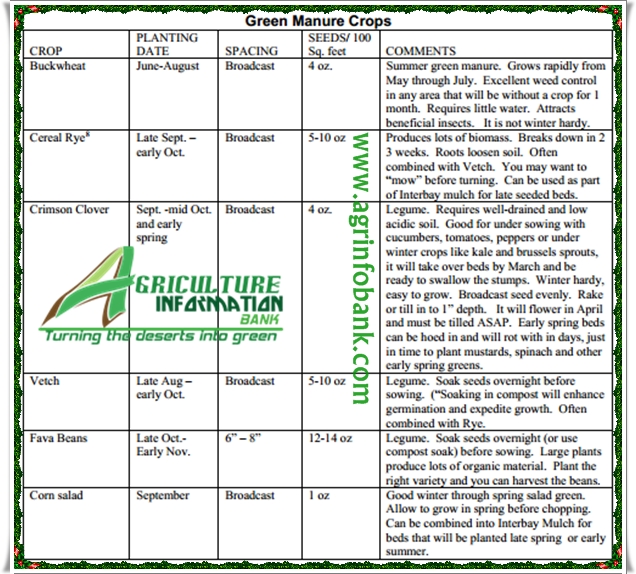Green manures are any crop high in
nutriments that can be tilled back into the soil. Like all plants Green Manures
capture CO2 and transforms it into sugars. Many have nitrogen fixing bacteria
living around there roots which convert Nitrogen from the air to a form that
plants can absorb The soil food web quickly decomposes Green Manure so the
nutriments in the leaves and roots can be taken up by the next crop. Cover
crops can also be inter-planted with other crops.
Benefits
Cover crops add organic material to
your soil. They make the soil easier to work. Cover crops help the soil hold
water and nutriment for easy absorption by plants. Many cover crops have deep
root structure that improves soil aeration and when the deep roots decay
improve the soil structure. The deep roots loosen the soil and mine minerals
which are made available to the garden. Cover crops are cheaper than buying
commercial grades of compost and soil amendments. They protect soil from
compaction and erosion by softening the impact of rain. Cover crops reduce weed
crops. They prevent the leaching of soil nutriments by absorbing them.
Determine your soil building goals. Is it nitrogen fixing, creating heavy biomass or breaking down compacted soil. Choose green manure crop for time of year and your soil building goals from the planting guide that follows. Mixing more than one crop together is a good idea. Consider a strategy to under sow green manures under maturing crops.
It is best to harvest green manures
right after they have started to bloom. Harvesting earlier is fine but plants
will not have reached their maximum nutritional storage and bio mass. After flowering
green manures become woody and after they seed and take longer to break down.
Bury them as you turn you soil or
cut them off and chop them up. If you chop them up mix cover crop with the two
inches of soil and treat as a mulch or use them in a side mulch. If you remove
the chopped cover crop from your garden you will have missed out on its biggest
benefit,
feeding your soil. Allow buried
crops to decompose before planting (one to three weeks depending on crop, soil
and weather.





.jpg)
Post a Comment